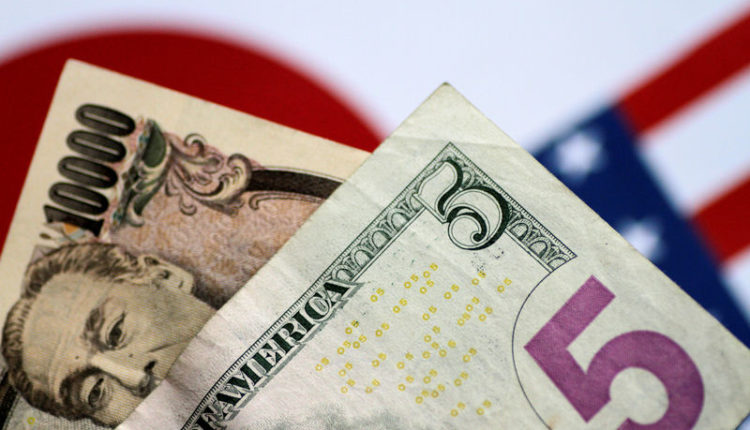Dollar falls versus yen as sentiment remains fragile on trade worries
By Stanley White
TOKYO (Reuters) – The dollar fell against the yen as Japanese stocks opened lower on Wednesday in a sign markets remain nervous about U.S.-China trade frictions following major foreign exchange volatility in the previous session.
Traders await China’s central bank fixing for the onshore yuan later on Wednesday and currencies are expected to remain stable, provided there is no fresh exchange of policy or rhetorical shots between Beijing and Washington.
The world’s two-largest economies are locked in an intense trade dispute that rapidly escalated late last week when U.S. President Donald Trump said he would impose more tariffs on Chinese goods.
Any rapid deterioration in sentiment would support the safe-haven yen and hasten yuan declines as there appears to be no quick resolution to China and the United States’ trade dispute, which escalated earlier this week when Washington branded Beijing a currency manipulator.
“Escalation of U.S.-China trade frictions has deteriorated market sentiment, which will eventually make Treasury yields go lower and the yen go higher,” said Tohru Sasaki, head of Japan markets research at JP Morgan Securities in Tokyo.
“We still expect the dollar to rise to 7.35 yuan by the end of the year, which will make the U.S. administration very uncomfortable. I expect the dollar to fall to 104-103 yen by the end of the year.”
The dollar fell 0.3% to 106.16 yen in early Asian trading. On Tuesday, the dollar rallied from a low of 105.51 yen to as high as 107.07 yen in a volatile session sparked by worries about China’s currency policy.
Graphic: World forex rates in 2019 – http://tmsnrt.rs/2egbfVh
Revived concerns about trade frictions tend to push demand for the safe-haven yen higher.
The offshore yuan was unchanged at 7.0531 per dollar, holding on to gains after rallying from 7.1397, the lowest since international trading in the currency began in 2010.
The dollar index (=USD), which measures the greenback against six major currencies, rose 0.37% to 97.581.
The euro stood at $1.1202 (EUR=EBS), flat so far in Asian trading.
Elsewhere in currency markets, the New Zealand dollar was little changed at $0.6528 before a Reserve Bank of New Zealand meeting.
The RBNZ is expected to cut interest rates to a record low of 1.25% on Wednesday, but strong unemployment data released on Tuesday suggests the economy may not be as bad as some had speculated.

